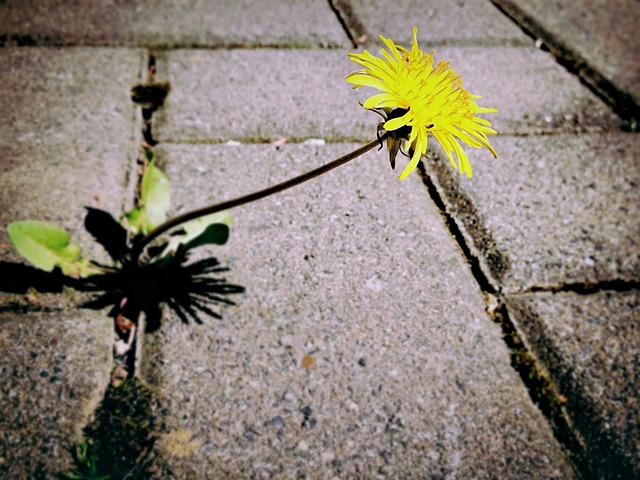The THCA flower, a non-psychoactive precursor to THC, is rich in both CBD and a variety of therapeutic terpenes, each playing a role in the entourage effect—a phenomenon where their combined actions produce greater benefits than the compounds alone. This synergy, particularly evident with terpenes like limonene and myrcene, enhances the therapeutic properties of THCA flower, potentially offering anti-inflammatory effects, pain relief, and mood improvement. CBD complements this effect by moderating any psychoactive impact of THCA while amplifying its health benefits. Consumers should approach THCA flower with caution, starting with low doses to assess individual responses, and always source products from reputable providers. Legal considerations are also crucial; while hemp-derived CBD and THCA products with less than 0.3% THC are federally legal under the 2018 Farm Bill, state laws vary, so it's important to verify the legality of THCA flower in one's locale before use.
Exploring the nuanced effects and potential benefits of THCA flower within the cannabis ecosystem, this article delves into its role as a key precursor in hemp. We’ll compare THCA flower’s properties with those of CBD, highlighting their distinct impacts and mutual enhancement through terpenes synergy. As we navigate the legal landscape and dosage considerations for integrating THCA flower into wellness routines, understanding its side effects becomes paramount. Join us as we uncover the intricacies of this emerging cannabinoid and its implications in health and well-being.
- Unraveling THCA Flower's Role in the Cannabis Ecosystem
- An Overview of THCA Flower and Its Precursors in Hemp
- THCA vs. CBD: A Comparative Analysis of Their Effects and Benefits
- The Entourage Effect: CBD and Terpenes Synergy Enhanced by THCA Flower
- Potential Side Effects and Considerations When Consuming THCA Flower
- Safety, Dosage, and Legal Implications of Incorporating THCA Flower into Wellness Regimens
Unraveling THCA Flower's Role in the Cannabis Ecosystem
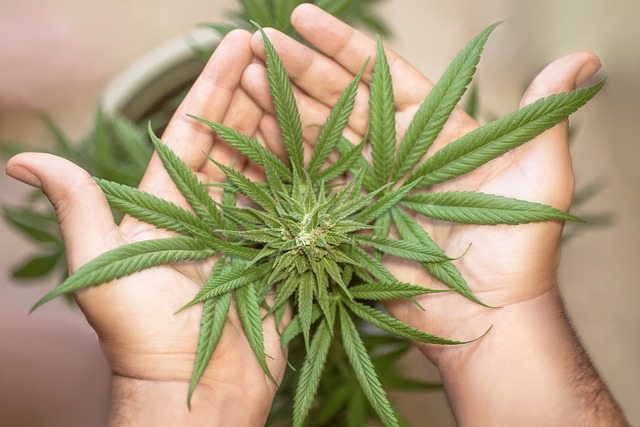
The THCA flower, a precursor to the more well-known THC found in cannabis, occupies a pivotal position within the plant’s ecosystem. Rich in cannabidiol (CBD) and an array of therapeutic terpenes, the THCA flower exhibits a complex interplay that is central to its effects and potential benefits. The synergy between CBD and terpenes found in the THCA flower is particularly noteworthy; it enhances the entourage effect, where the collective action of these compounds is greater than the sum of their individual effects. This interaction not only amplifies the therapeutic properties but also influences the overall experience of using the flower. The presence of CBD in the THCA flower can moderate the psychoactive effects typically associated with THC, offering a more balanced and harmonious experience. Furthermore, the unique terpene profile of each strain contributes to the distinct aromas and flavors, as well as to its therapeutic potential. These volatile compounds are known to modulate various physiological processes, including pain perception, mood regulation, and inflammatory responses, making the THCA flower a subject of growing interest in both medical and recreational cannabis sectors. Understanding the role of THCA flower within this ecosystem is crucial for optimizing its benefits and ensuring safe consumption practices. As research continues to evolve, the potential applications and effects of THCA flower, coupled with its synergistic relationship with CBD and terpenes, are becoming increasingly clear, highlighting its significance in the broader cannabis landscape.
An Overview of THCA Flower and Its Precursors in Hemp
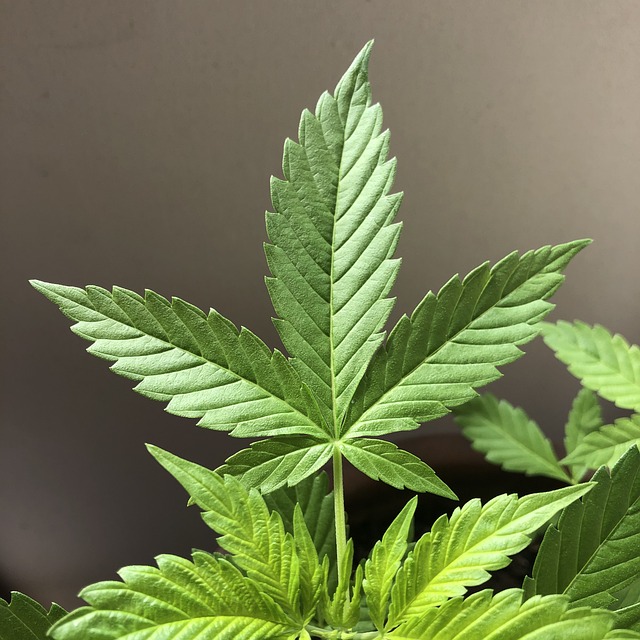
THCA flower, which stands for tetrahydrocannabinolic acid, is a non-psychoactive compound found in hemp that serves as the precursor to THC, the primary psychoactive element in cannabis. THCA is gaining attention for its potential wellness benefits and is often consumed in raw or decarboxylated form. When heated, THCA converts to THC, but prior to this transformation, it exhibits distinct properties that complement other cannabinoids and terpenes within the hemp plant. The synergy between THCA, CBD (cannabidiol), and terpenes is a subject of growing interest in the scientific community due to the enhanced effects observed when these compounds interact harmoniously.
CBD, another major cannabinoid found in hemp, works synergistically with THCA and terpenes to modulate various physiological processes. This entourage effect can amplify the therapeutic properties of each individual component, leading to a more potent and effective whole than any single compound on its own. The presence of diverse terpenes in THCA flower contributes further to this synergy, offering a wide array of aromatic profiles and potential health benefits. These terpenes not only influence the flavor and scent but also play a crucial role in the plant’s defense mechanisms and the modulation of cannabinoid receptor activity. As researchers continue to explore the intricacies of THCA flower and its constituents, the full spectrum of their interactions becomes clearer, emphasizing the importance of considering the holistic profile of hemp-derived products for optimal wellness effects.
THCA vs. CBD: A Comparative Analysis of Their Effects and Benefits
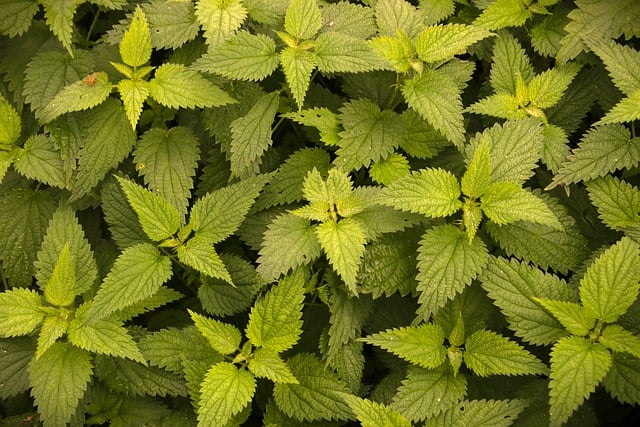
Betacommandine (THCA) and cannabidiol (CBD) are two prominent cannabinoids found within the Cannabis sativa plant, each offering distinct therapeutic properties. THCA, the raw form of tetrahydrocannabinolic acid, is non-psychoactive and is believed to possess anti-inflammatory, neuroprotective, and analgesic effects. In contrast, CBD is well-documented for its lack of psychoactive influence while providing a wide array of health benefits, including anxiety relief and pain management.
The synergy between THCA and CBD can be further amplified when combined with the plant’s rich profile of terpenes. Terpenes are aromatic compounds that not only contribute to the unique scent and flavor of cannabis but also play a crucial role in modulating the effects of both THCA and CBD through what is known as the ‘entourage effect.’ This synergy can lead to a more effective therapeutic outcome than either compound alone, as terpenes can influence how cannabinoids interact with our body’s endocannabinoid system. For instance, the terpene limonene can enhance the mood-elevating and anti-inflammatory properties of CBD, while myrcene is known for its sedative effects when paired with THCA, which may help in managing insomnia or chronic pain. Understanding the nuanced interplay between THCA, CBD, and terpenes is essential for optimizing the benefits and minimizing any potential side effects associated with their use.
The Entourage Effect: CBD and Terpenes Synergy Enhanced by THCA Flower
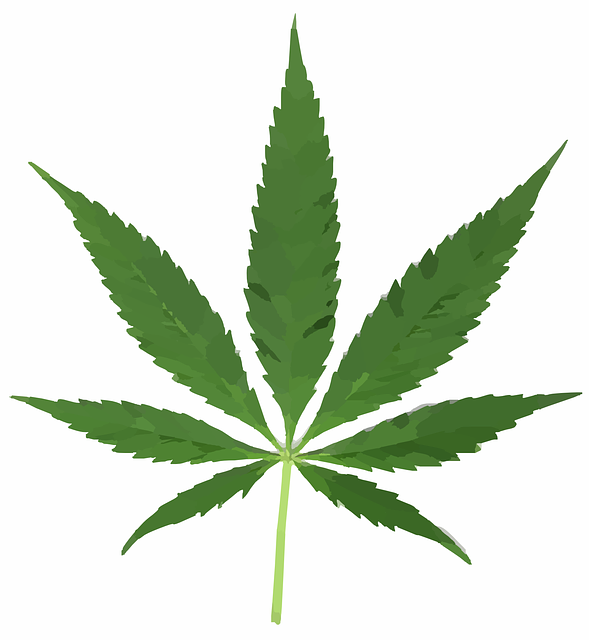
The interaction between cannabinoids and terpenes within the cannabis plant is a complex and intricate dance, leading to what is known as the Entourage Effect. This phenomenon occurs when CBD and terpenes, found abundantly in THCA flower, work in concert to amplify their respective effects. THCA, or Tetrahydrocannabinolic acid, is the precursor to THC (Tetrahydrocannabinol) and exists in raw cannabis plants. When heated, THCA converts into THC, but in its acidic form, it plays a crucial role in this synergy. CBD, or Cannabidiol, is another significant cannabinoid that does not produce psychoactive effects, yet it complements the therapeutic properties of THCA and terpenes.
The Entourage Effect suggests that the combined action of these compounds is greater than the sum of their individual actions. This synergy is particularly notable when using a THCA flower rich in CBD and terpenes. Terpenes, the aromatic compounds responsible for the distinct scents and flavors of cannabis varieties, not only enhance the sensory experience but also influence the pharmacological properties of the plant. For instance, limonene-rich strains are believed to have mood-elevating qualities, while myrcene may contribute to pain relief effects. The synergy between CBD and terpenes in THCA flower can lead to a more potent and balanced therapeutic response, making it an object of interest for both researchers and consumers looking for effective plant-based remedies.
Potential Side Effects and Considerations When Consuming THCA Flower
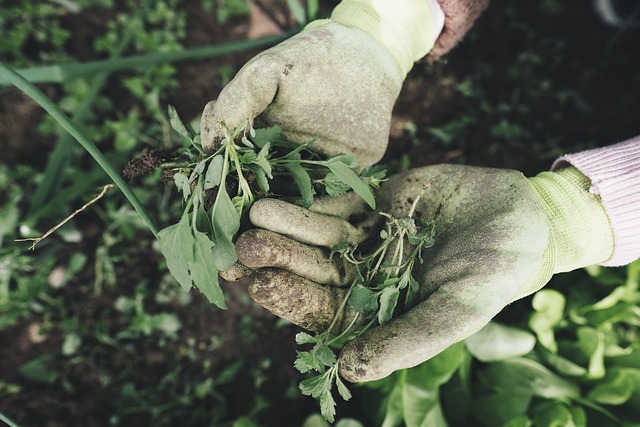
Consuming THCA flower, which is the raw, unheated form of cannabis that contains tetrahydrocannabinolic acid, can produce a range of effects distinct from those experienced after decarboxylation into THC. Users may encounter side effects such as anxiety, paranoia, or discomfort if they consume higher than recommended doses or possess sensitivity to cannabinoids. It is crucial to approach THCA consumption with caution, especially given its potency and the fact that it can interact differently compared to other cannabinoid forms due to its unique molecular structure.
The potential side effects of THCA flower are often modulated by the entourage effect, which is the interaction between cannabinoids like CBD and terpenes found in the plant. This synergy can influence the effects of THCA, potentially mitigating some of its psychoactive properties while enhancing therapeutic benefits. For instance, certain terpenes may offer anxiolytic effects that balance out any anxious side effects associated with THCA. Conversely, individuals should be aware that this synergy can also lead to heightened or prolonged effects if the dosage is too high. Therefore, it is essential for consumers to be well-informed about the specific product they are using, including its cannabinoid profile and terpene content, to ensure a safe and positive experience with THCA flower.
Safety, Dosage, and Legal Implications of Incorporating THCA Flower into Wellness Regimens
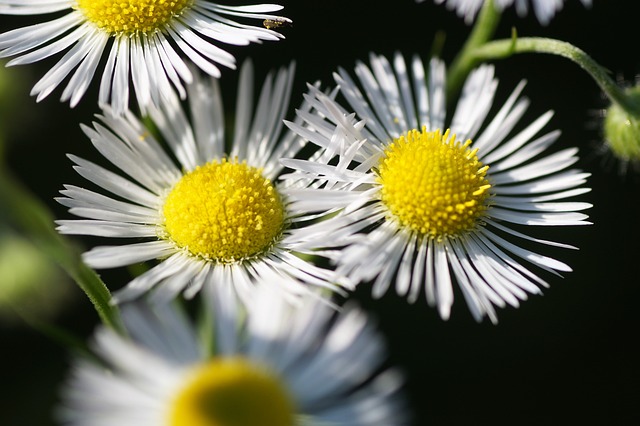
Delta-9 tetrahydrocannabinolic acid (THCA) flower, which is the raw, uncured form of cannabis, has been gaining attention in wellness circles for its potential therapeutic properties. Unlike its psychoactive counterpart, THC, THCA is non-psychoactive and is found in raw cannabis plants. When heated, THCA converts to THC, but in its natural state, it may offer benefits without the intoxicating effects. The safety profile of THCA flower is generally considered favorable when used responsibly; however, as with any substance, individual reactions can vary. It’s important for consumers to start with a low dosage to gauge their body’s response and to avoid adverse reactions. The optimal dosage can differ based on various factors including body chemistry, tolerance, and the specific wellness goals of the individual.
Incorporating THCA flower into wellness regimens often involves leveraging its synergy with CBD (cannabidiol) and terpenes. These compounds work together to enhance each other’s effects in a phenomenon known as the ‘entourage effect.’ This synergy can amplify the potential therapeutic benefits of THCA flower, including pain relief, anti-inflammatory properties, and mood improvement. It’s crucial for users to source THCA flower from reputable providers to ensure the product’s purity and potency. Additionally, legal implications must be considered; while hemp-derived CBD and THCA products with less than 0.3% THC are federally legal in the United States under the 2018 Farm Bill, state laws vary significantly, and some states have restrictive regulations regarding cannabis products. Users should always verify the legality of THCA flower within their jurisdiction before incorporating it into their wellness routine.
In conclusion, the exploration of THCA flower’s multifaceted role within the cannabis ecosystem has shed light on its significance as a natural component alongside CBD. The comparative analysis between THCA flower and CBD highlights their distinct effects and potential benefits, emphasizing the importance of the entourage effect facilitated by the synergy of CBD and terpenes when THCA flower is part of the mix. However, it is crucial for consumers to be aware of the potential side effects associated with its consumption, which can include mild psychoactive effects due to the presence of THC, even though THCA itself does not induce psychoactivity. As with any wellness regimen, safe usage and appropriate dosing are paramount, especially considering the evolving legal landscape surrounding hemp-derived products. Prospective users should consult healthcare professionals to make informed decisions that align with their health needs and local regulations. With a growing body of research, the understanding of THCA flower and its synergy with CBD and terpenes continues to advance, offering promising insights into holistic wellness.
